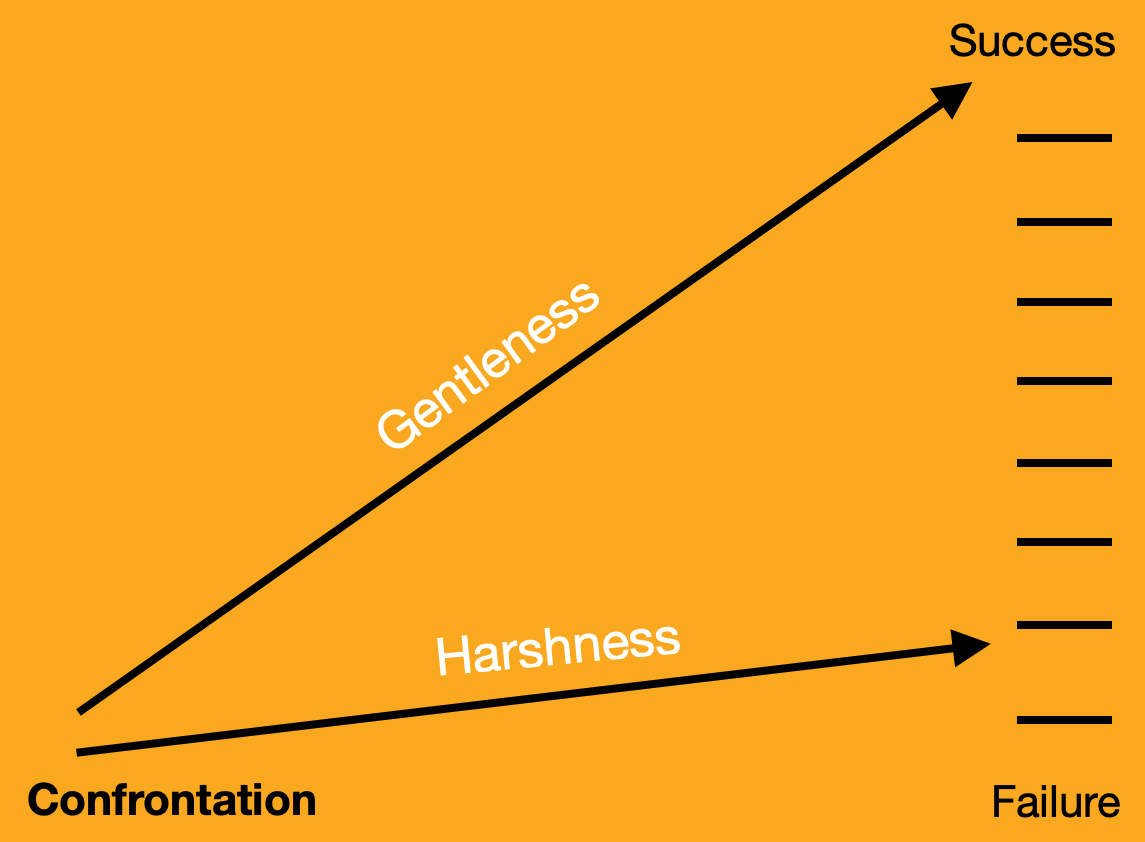You cause me pain, I’ll cause you more.
What if my revenge is less about balancing the scales of justice and more about my felt needs to:
-
Protect what I value from infringers reflecting my desire for control.
-
Feel more untouchable which reveals my ego’s attraction to power — to be a superhero or godlike.
Romans 12 says this regarding revenge: “19 Beloved, never avenge yourselves, but leave it to the wrath of God, for it is written, ‘Vengeance is mine, I will repay, says the Lord.’ 20 To the contrary, ‘if your enemy is hungry, feed him; if he is thirsty, give him something to drink; for by so doing you will heap burning coals on his head.’ 21 Do not be overcome by evil, but overcome evil with good.”
Our Lord’s words indicate that we were not designed for revenge – it will warp us. We are all commanded to love enemies. We are also informed that some spaces like judgement have a big ⊘ sign warning us to tread cautiously. This prohibition on revenge is similar to the ancient situation when God warns, “Do not eat from the Tree of Knowledge of Good and Evil or you will die.”
Tempted to confront or judge someone? If there is even a slight odor of revenge, it’s probably cyanide and will do harm to you and whoever you disperse it to.
Our agape love decays when we cross the threshold of revenge. God’s agape does not corrupt. The same principal of decay applies to humans in Matthew 11-12 regarding judgement and harsh confrontation. Jesus was also fully God when he confronted people. We have to be extremely careful not to cross the line into vengeance when confronting cultural practices, ideologies or religious groups that are different from ours.
In Matthew 11, Jesus confronts religious cities who don’t receive him. Their cultural ineptness is keeping the good news at bay from outsiders, children and sinners.
In Matthew 12, Jesus confronts religious leaders who lack mercy and blockade others from coming to him. Jesus confronts because his incarnation into our space trumpets a new culture of repentance and living wisdom by the Holy Spirit.* We carry the presence of the Holy Spirit in us and that is what should convict others, not us.
This divine confrontation is very evident in Matthew’s gospel when Jesus was being roadblocked by the religious leaders. Jesus, as God incarnate, can be harsh while maintaining complete love and keeping the best interests of those he is confronting in mind. We simply can’t. Our love frays, loses shape, and eventually implodes when we plunge into harshness. When we take the path of revenge, God says, that ground is too holy for a son or daughter to tread. We may be able to cross that line after we experience mercy and judgement at the Great White Throne (Revelation 20:11-15).We are not equipped for revenge and in the complete image of agape love before that day.
If you follow Jesus, it may be good to ask yourself this question: When is confrontation God’s prerogative to act and when is it my prerogative by submitting to the Holy Spirit’s guidance? The Christian task of confronting a dysfunctional human system or confronting our siblings in Christ with harsh words or actions are both extremely narrow roads with little margin of error. We should tread extremely cautiously.
We can use harshness to save a life but gentleness will be a much safer tool for rescue.
*Jesus’ words follow this pattern when describing this new culture, “something greater than _____ is here.”
-
Greater than the Temple — a culture of devout religious life. (Matt 12:6)
-
Greater than Jonah — judgment and repentance, into a new paradigm of heaven’s perspective. (Matt 12:41)
-
Greater than Solomon — divine wisdom and a morally rich life. (Matt 12:42)



